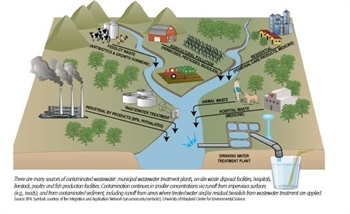Download to calendar
Unregulated chemicals from our wastewater are finding their way into our water supply. Our ability to detect and understand the effects of those contaminants is evolving faster than our ability to remove them from our water. We know contaminants such as pharmaceuticals, plastics and pesticides can harm people and aquatic wildlife, though it is unclear to what extent. As the science unfolds, we must have a clear understanding of what is in our water, how these contaminants are linked to health problems, and what we can do to reduce or eliminate these threats. Fortunately, solutions are starting to emerge.

Join Openlands and the Metropolitan Planning Council on Thursday, Sept. 15, to learn more about emerging contaminants and how to keep to keep them out of our water. The U.S. Geological Survey’s Dana Kolpin will explore how contaminants detected in our region’s surface and groundwater have affected fish and other wildlife. Carole Braverman, a toxicologist, from the U.S. EPA, will examine whether these chemicals pose significant health risks to people. Laura Kammin from Illinois-Indiana Sea Grant will discuss innovative programs to reduce this contamination, such as drug take-back facilities. Debra Ness, of the Fox Metro Water Reclamation District, will discuss the real-world successes and challenges of proactive and preventative water quality management.
Panelists:
Dana Kolpin, Research Hydrologist, U.S. Geological Survey
Carole Braverman, Toxicologist, U.S. Environmental Protection Agency
Laura Kammin, Pollution Prevention Program Specialist, Illinois-Indiana Sea Grant
Debra Ness, Pretreatment Supervisor, Fox Metro Water Reclamation District
Lunch will be provided (you may request a vegetarian meal when you register). Cost is $10 for Openlands and MPC donors and members. $15 for all others.
The Centre in Elgin is a short walk from the Elgin Metra station (Milwaukee District-West line).